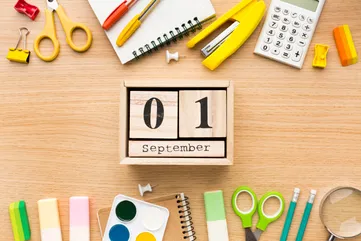Habit Tracking
Habit tracking involves monitoring and recording behavior patterns to build awareness, maintain accountability, and visualize progress toward establishing positive habits.
Why tracking works
Behavioral psychology research shows that self-monitoring significantly increases behavior change success. The feedback loop created by tracking reinforces positive behaviors and highlights areas needing attention.
Studies on habit formation demonstrate that people who track habits are significantly more likely to maintain them long-term. The visual representation of progress activates reward circuits, providing dopamine hits that reinforce behavior continuation.
Harkin et al. (2016) meta-analysis found that self-monitoring significantly improves goal attainment across all domains. Gardner et al. (2012) showed that consistent tracking accelerates the automaticity of habit formation by 50%.
You're not alone
If your teen starts habits enthusiastically but forgets within days, or claims they're doing things they're not, tracking provides objective reality. Many parents become frustrated trying to monitor teen habits without systems. Visual tracking reduces arguments about what actually happened. Families using habit tracking report better follow-through and less conflict about routine completion.
What it looks like day to day
Student
Your teen checks off completed habits on a phone app, building a satisfying streak that motivates continuation.
Parent
You can see your teen's habit tracker on the fridge, celebrating successes without needing to interrogate about task completion.
Tiny steps to try
Implement tracking systems that work for your teen's style.
- 1
Simple starts
Track 1-3 habits maximum initially. Overwhelming tracking systems get abandoned.
- 2
Visual displays
Use charts, apps, or calendars where progress is constantly visible. Out of sight fails.
- 3
Binary tracking
Simple yes/no rather than complex metrics. Did it or didn't, no partial credit initially.
- 4
Streak protection
Focus on consecutive days completed. [Visual chains](/the-parent-bit/finding-order-in-the-chaos-setting-up-calendars-for-kids) motivate continuation.
- 5
Weekly reviews
Regular reflection on patterns. What helped success? What caused misses?
Why tracking accelerates habit formation
What gets measured gets managed. Tracking makes invisible behaviors visible, providing feedback that reinforces positive changes and reveals patterns.
Tracking benefits:
• Increases behavior awareness
• Provides immediate feedback
• Creates visual progress motivation
• Identifies success patterns
• Reveals obstacle trends
• Maintains accountability
The act of tracking itself often improves behavior through increased consciousness.
References
Gardner, B., Lally, P., & Wardle, J. (2012). Making health habitual: The psychology of 'habit-formation' and general practice. British Journal of General Practice, 62(605), 664-666.
Harkin, B., Webb, T. L., Chang, B. P., Prestwich, A., Conner, M., Kellar, I., ... & Sheeran, P. (2016). Does monitoring goal progress promote goal attainment? A meta-analysis of the experimental evidence. Psychological Bulletin, 142(2), 198-229.
Ready to help your teen thrive?
Get personalized 1-on-1 coaching to build better habits and boost grades. Join 10,000+ families who trust Coachbit.
Frequently Asked Questions
Doesn't tracking become obsessive or stressful?
Healthy tracking focuses on progress, not perfection. The goal is awareness and improvement, not flawless streaks. If tracking creates anxiety or shame, simplify the system or adjust expectations. Some teens do better with weekly patterns than daily tracking. Match the system to psychological needs.
What's better: apps or paper tracking?
Whatever gets used consistently. Apps provide automatic reminders and satisfying feedback. Paper offers tangible interaction and visibility. Some teens need the dopamine hit of app notifications; others prefer physical checkmarks. Experiment to find what sticks. The best system is the one your teen will actually use.
Related Terms
Habit Formation
Habit formation is the process of creating automatic behaviors through consistent repetition, reducing the mental effort required for routine tasks and positive behaviors.
Progress Tracking
Progress tracking is systematically monitoring advancement toward goals through measurable indicators, maintaining motivation and enabling strategy adjustments.
Self-Monitoring
Self-monitoring is observing and tracking your own behaviors, thoughts, and progress to increase awareness and guide improvement.
Related Articles

Finding Order in the Chaos – Setting up Calendars for Kids
Creating a calendar and daily schedule for kids can be beneficial to manage school, homework, extracurriculars and hobbies. Color-coding and time-blocking are helpful tools for kids with ADHD.
Read article
3 Ways an Executive Functioning Coach Can Help Your Child
Discover why executive functioning skills are crucial for your child's success. Learn how an executive functioning coach can make a difference
Read article
4 Healthy Habits To Set Your Teen Up For Life
Set your teen up for life with 4 healthy habits. Quality sleep, digital wellbeing, balanced scheduling, and stress management for a successful future!
Read article
